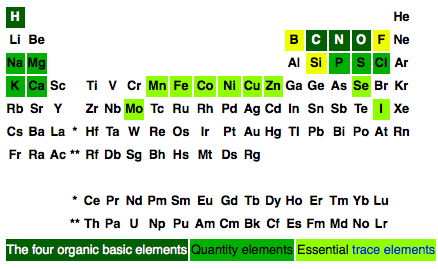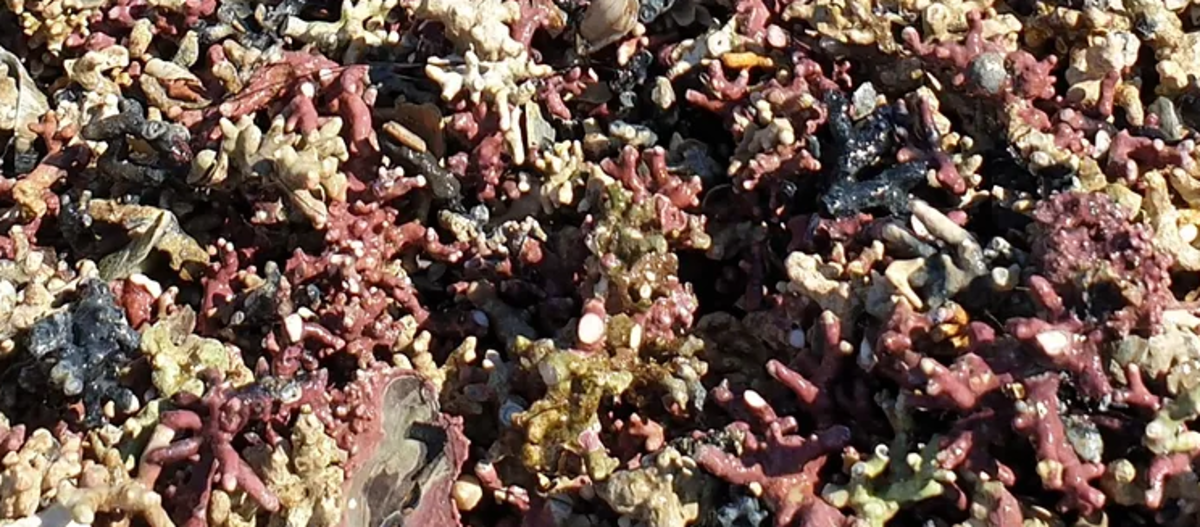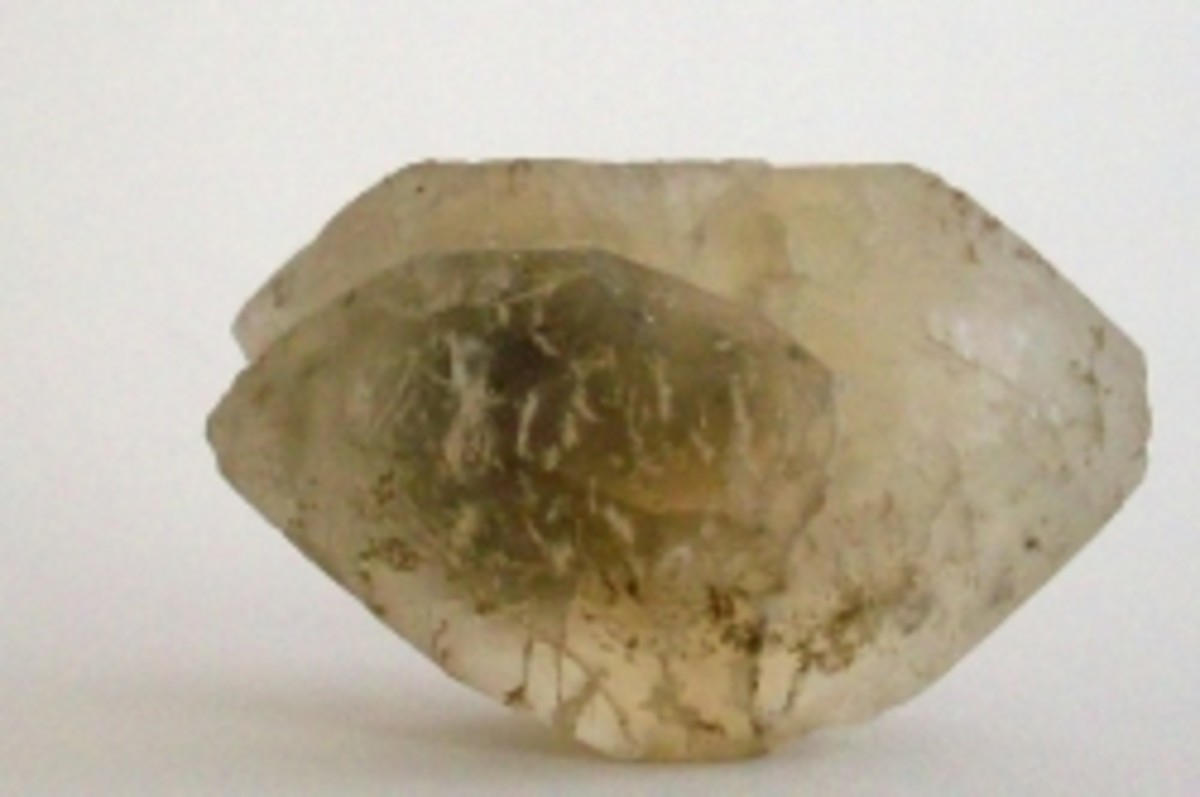Importance of Minerals

Minerals are more important in human nutrition than vitamins (Dr. Henry Schroeder). The body can manufacture many vitamins, but it cannot produce trace minerals.
Besides the four main elements we need for life (Hydrogen, Carbon, Nitrogen and Oxygen), we require dietary minerals in certain quantities to have good health.
Trace minerals are also essential to proper metabolic functioning in all phases of the life process.

Essential Dietary Minerals
- Sodium
- Magnesium
- Potassium
- Calcium
- Phosphorus
- Sulfur
- Chlorine
Trace elements (small amounts, but needed)
- Manganese
- Iron
- Cobalt
- Selenium
- Nickel
- Copper
- Zinc
- Molybdenum
- Iodine
Essential Minerals
Sodium is a systemic electrolyte essential for energy transfer in the body.
Where can you get it from?
When you have exercised hard, you can regain some energy from drinking sports drinks that have sodium. Table salt, sea vegetables, milk and spinach contain sodium.
Magnesium
Magnesium helps the nerves and muscles function, steadies the rhythm of the heart, and keeps bones strong. It also helps the body to create energy and make proteins.
Where can you get it from?
Chocolate (yeah!), whole grains, whole-grain breads, nuts and seeds, green leafy vegetables, potatoes, beans, avacados, bananas, and milk. Male teens need 410 mg of magnesium a day and female teens need 360 mg.
Potassium
Potassium helps with the muscle and nervous systems. It also helps to maintain the balance of water in blood and body tissues.
Where can you get it from?
Potassium is found in potatoes (with skins), green leafy vegetables, potatoes, citrus, bananas, fruits, dried fruits, and legumes (peas and lima beans). Teens need 4,700 mg of potassium each day.
Calcium builds strong bones and teeth. During childhood and the teen years, it is important to get enough calcium to fight against bone loss in later years. Without enough calcium, bones are susceptible to osteoporosis, which causes bones to break very easily.
Where can you get it from?
Milk and dairy products like yogurt, cheese, cottage cheese. Also dark green leafy vegetables, broccoli, soy foods and other foods fortified with calcium, which includes some kinds or orange juices. Teens should have at least 1,300 mg of calcium per day.
Phosphorus is a component of our DNA and also the phospholipids that form all cell membranes.
Where can you get it from? Pinto beans, trout, black-eyed peas, almonds, pumpkin/squash, turkey, cooked chicken breast, pork chop, bok choy, and cabbage.
What can cause a mineral imbalance in the body?
Improper diet - If you eat too many refined and processed foods, your body will not have enough of the essential minerals to keep it running properly. Also, the way your food is prepared and also the soil that the food you are eating was grown in affects (whether or not it had adequate nutrients).
Chronic Stress - Emotional or physical stress depletes the body of nutrients and reduces the capability to absorb and utilize many nutrients.
Medications - Both over-the-counter and prescription medications can deplete the body stores of nutrients and can increase the toxicity of some minerals.
Pollution - Cigarette smoke, hair dyes (lead), anti-perspirants (aluminum) and many more.
Supplements - Taking an excess of supplements can produce mineral excesses.
Inherited - Trace mineral imbalances can result from hereditary disorders like hemochromatosis and Wilson's disease, kidney dialysis, parenteral nutrition, or restrictive diets prescribed for people with inborn errors of metabolism.
Interesting
The U.S. Bureau of Chemistry and Soils calculated the chemical and mineral composition of the human body, which breaks down as follows:
- 65% Oxygen
- 18% Carbon
- 10% Hydrogen
- 3% Nitrogen
- 1.5% Calcium
- 1% Phosphorous
- 0.35% Potassium
- 0.25% Sulfur
- 0.15% Sodium
- 0.15% Chlorine
- 0.05% Magnesium
- 0.0004% Iron
- 0.00004% Iodine
Our bodies also contain trace quantities of fluorine, silicon, manganese, zinc, copper, aluminum, and arsenic. Together, all of the above amounts to less than one dollar!










